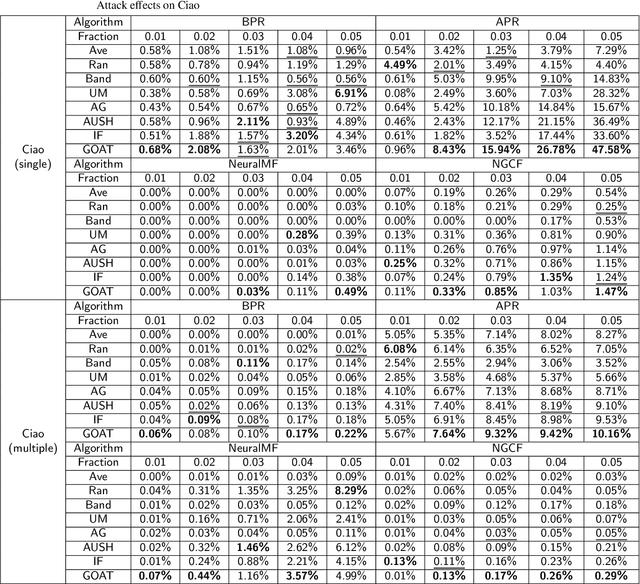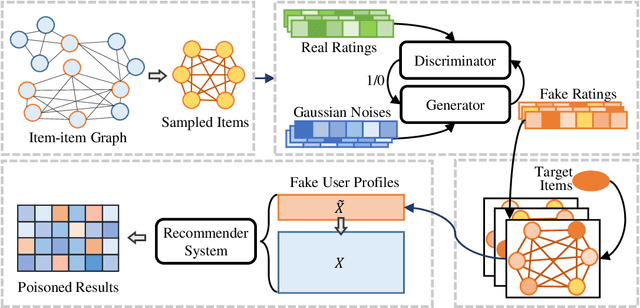Xu Wange
Ready for Emerging Threats to Recommender Systems? A Graph Convolution-based Generative Shilling Attack
Jul 22, 2021



Abstract:To explore the robustness of recommender systems, researchers have proposed various shilling attack models and analyzed their adverse effects. Primitive attacks are highly feasible but less effective due to simplistic handcrafted rules, while upgraded attacks are more powerful but costly and difficult to deploy because they require more knowledge from recommendations. In this paper, we explore a novel shilling attack called Graph cOnvolution-based generative shilling ATtack (GOAT) to balance the attacks' feasibility and effectiveness. GOAT adopts the primitive attacks' paradigm that assigns items for fake users by sampling and the upgraded attacks' paradigm that generates fake ratings by a deep learning-based model. It deploys a generative adversarial network (GAN) that learns the real rating distribution to generate fake ratings. Additionally, the generator combines a tailored graph convolution structure that leverages the correlations between co-rated items to smoothen the fake ratings and enhance their authenticity. The extensive experiments on two public datasets evaluate GOAT's performance from multiple perspectives. Our study of the GOAT demonstrates technical feasibility for building a more powerful and intelligent attack model with a much-reduced cost, enables analysis the threat of such an attack and guides for investigating necessary prevention measures.
 Add to Chrome
Add to Chrome Add to Firefox
Add to Firefox Add to Edge
Add to Edge